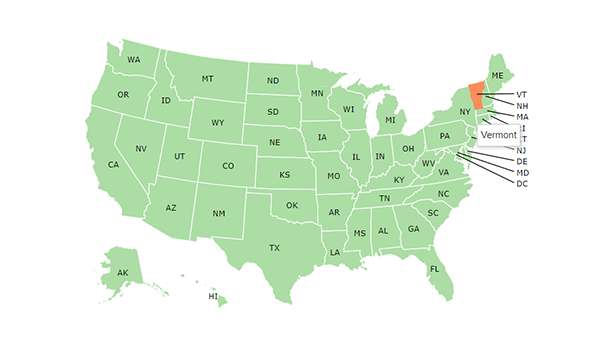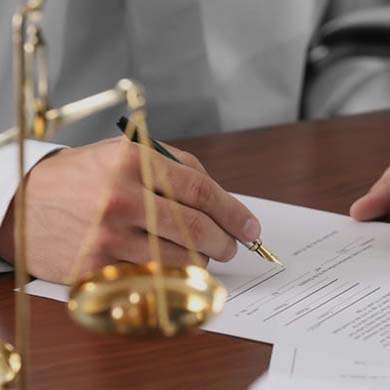File Small Claims Court in Vermont
Vermont is a state in the New England region of the northeastern United States. It borders the U.S. states of Massachusetts to the south, New Hampshire to the east, New York to the west, and the Canadian province of Quebec to the north. Vermont is the second-smallest by population and the sixth-smallest by area of the 50 U.S. states. The state capital is Montpelier, the least populous state capital in the United States. The most populous city, Burlington, is the least populous city to be the most populous city in a state. As of 2015, Vermont was the leading producer of maple syrup in the United States. In crime statistics, it was ranked since 2016 as the safest state in the country.

Vermont Small Claim Filing
Why do you waste your time energy after a small claim? We are here to take pain for you. We are literate enough about the Small Claims Court System. We will get your claim filed and make you free from worries. We file Vermont Small Claim in the relevant court. We provide proof after the task is completed. Our policy provides individuals and companies peace of mind.
Suing Someone in Vermont Court Or Being Sued?
We, in Vermont Small Claim filing offer in case if you want to file a case against somebody, we can help by:
- Serving Your Small Claims Papers Before The Deadline.
- Serve Your Claim In Proper Legal Way for Vermont Court.
- Fill Your Proof With The White River Junction Court.


In case you are sued, we talk to the relevant person or company to settle things down. We appeal your small claim judgment as well.
E-Filing Services inVermont
Small Claim Vermont E-file your legal documents to Vermont courts that accept E-Filling on your behalf.
Small Claims For Bad Cheque Or Payment in Vermont
Vermont Small Claim settles all money matters reliably and authentically if you are deceived in money matters.
Recent Cases Filed in Vermont Small Claims Court
File Small Claims in White River Junction For Security Deposit
In Vermont Small Claim, if your former landlord refuses to return the security deposited you paid, we offer our services.
Vermont Small Claims Filing if Refusing To Pay After A Car Accident
If someone ruins your car in Vermont and refuses to pay for its repair, you can file small claims to recover your car accident damage. Small claims filingprepares all the documents to file a small claim in Vermont court.
Direct Legal Small ClaimService inVermont
We provide full service of handling of writs both state and federal.
Court Filling Small Claim Vermont Services
Throughout Vermont in the small claims, we offer services to accommodate on the same day, next day or routine service.
Who Can Sue Small Claim In Court Vermont?
Those who can claim for Small Claim Vermont are listed below:
- Married Couples can file small claims in White River Junction court.
- Business Partnerships can also file small claims
- Corporations can file small claims
- Government Agencies can file small claims
- Motor Vehicle Claims can be handled
- Minors can also file small claims in the court of Vermont
- Prisoners can file small claims
- Bill Collectors can also file small claims in Vermont
How Much Does It Cost To File A Small Claim Court, Vermont?
There is a $30 filing fee for a case asking for up to $1500. To claim over $1500, and up to $5,000, there is a filing fee of $50. If your claim is above $5,000, the filing fee is $75. If you file more than 12 cases in a year, subsequent cases will cost $100.



